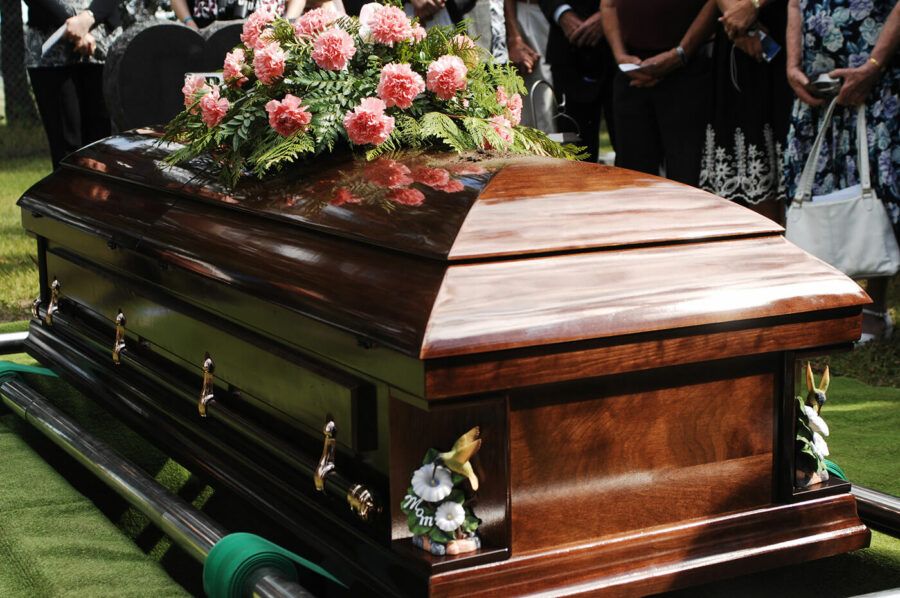In this article:
For those grieving the loss of a loved one to the COVID-19 pandemic, a financial toll may accompany the emotional toll. To help ease the financial burden, two federal laws—the Coronavirus Response and Relief Supplemental Appropriations Act of 2021 and the American Rescue Plan Act of 2021—help cover COVID-19-related funeral expenses incurred after January 20, 2020.
Here's what you need to know about this federal assistance.
What Funeral Assistance Does the Federal Government Provide?
In April 2021, the Federal Emergency Management Agency (FEMA) began offering financial assistance for funeral expenses incurred after January 20, 2020, for the death of a loved one attributed to COVID-19. The money is designed to cover expenses associated with funeral services, cremation and burial.
FEMA limits the assistance to $9,500 per funeral and $35,500 per application. In 2019, the National Funeral Directors Association pegged the median cost of a funeral with a burial and viewing at $7,640.
Items eligible for assistance include:
- Transportation for up to two people to identify the deceased person
- Transfer of remains
- Casket or urn
- Burial plot or cremation niche
- Marker or headstone
- Clergy or officiant services
- Arrangement of funeral ceremony
- Use of funeral home equipment or staff
- Cremation or burial costs
- Costs for producing and certifying death certificates
Who Is Eligible for Funeral Assistance?
To receive federal COVID-19 funeral assistance, you must be a U.S. citizen, non-citizen national or qualified alien who incurred funeral expenses after January 20, 2020, for a death attributed to COVID-19. The death must have happened in the U.S., the District of Columbia or a U.S. territory. However, the deceased person does not have to have been a U.S. citizen, non-citizen national or qualified alien.
If several people contributed to funeral expenses, they should apply under a single application as applicant and co-applicant. FEMA says it will also consider documentation from other people not listed as the applicant or co-applicant who may have incurred funeral expenses.
An applicant can seek expense reimbursement for funerals of several deceased people.
What Expenses Are Not Included in Funeral Aid?
FEMA will not reimburse any payment for an anticipated funeral. This includes a burial or funeral insurance policy, a prepaid funeral contract, a prepaid trust for funeral expenses or an irrevocable trust for Medicaid.
Furthermore, an applicant who already received reimbursement for certain funeral expenses through government agencies, nonprofits and similar organizations cannot resubmit the same expenses to the FEMA program.
However, if an applicant received money from the deceased person's life insurance policy, you still can pursue reimbursement from FEMA.
How Do You Get Funeral Assistance?
To complete an application, you must call FEMA at 844-684-6333. Calls are answered from 9 a.m. to 9 p.m. Eastern time Monday through Friday. No online applications are accepted.
Once you have applied and have been given an application number, you can supply the required documents by:
- Uploading them to your FEMA account at DisasterAssistance.gov.
- Faxing them to 855-261-3452.
- Mailing them to P.O. Box 10001, Hyattsville, MD 20782.
FEMA requires the following documents for reimbursement of funeral expenses:
- Official death certificate that attributes the death to COVID-19 and shows the death occurred in the U.S., the District of Columbia or a U.S. territory. The death certificate must indicate the death "may have been caused by" or "was likely the result of" COVID-19 or COVID-19-like symptoms. Similar phrases that indicate a high likelihood of COVID-19 are considered sufficient.
- Proof of funeral expenses, such as receipts, that include the applicant's name, deceased person's name, dollar amount of funeral expenses and dates the expenses were incurred.
If you're found to be eligible for reimbursement of funeral expenses, FEMA will send the money by check or direct deposit.
There is no deadline to apply for funds, and there is no overall funding cap for the reimbursement program.
Other Steps to Take When a Loved One Dies
In addition to coping with the costs of a funeral, you'll likely need to take other steps when a loved one dies. It may be helpful to have a checklist you can refer to to ensure their estate is secure. Here are eight actions you can take:
- Make sure your loved one's valuables are safe and secure so that they're not stolen by burglars.
- Forward your loved one's mail to your home or the home of the person overseeing the estate.
- Obtain 10 to 20 certified copies of the person's death certificate. These will be used for communication with banks, investment firms, insurance companies and other institutions that hold your loved one's assets.
- Contact the Social Security Administration to report your loved one's death.
- Reach out to the U.S. Department of Veterans Affairs if your loved one was a military veteran.
- Contact banks and other financial institutions where the loved one maintained accounts.
- Notify the person's credit card companies of the death so the accounts can be canceled or transferred to the surviving spouse.
- Contact the three credit bureaus (Experian, TransUnion and Equifax) to obtain your loved one's credit reports. This will give you an overview of creditors you may need to contact in regard to credit card and loan accounts. The deceased person's credit files will eventually no longer exist once all the credit accounts have been deleted over time.
The Bottom Line
FEMA funeral assistance is available for funeral expenses incurred in 2020 and beyond. If the FEMA program won't cover all of the expenses associated with a funeral for a loved one who died from COVID-19-related causes, or if you are not eligible for the program, you may be able to turn to churches, employers, businesses or crowdfunding websites to help defray the costs.

